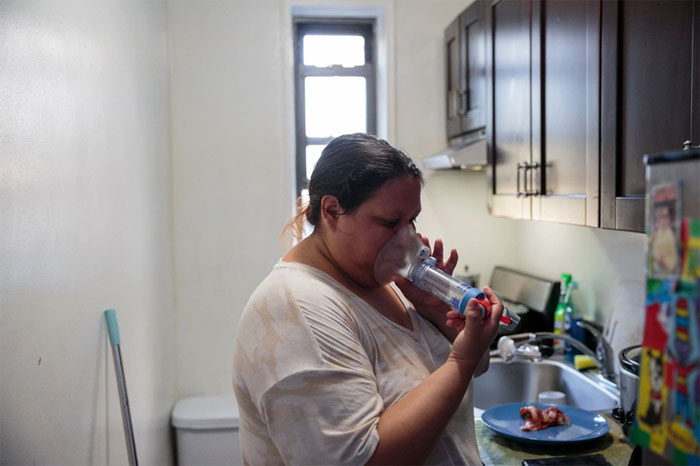The first trial of a drug targeting fatigue and muscle weakness in individuals experiencing long-term effects of Covid-19, known as “Long Covid,” is currently underway in the UK.
This is also the first trial involving patients with long-term Covid-19 symptoms (commonly referred to as “Long Covid”) who were not hospitalized during their infection, according to the Guardian.
Potential to Pave the Way for Other Important Trials
The drug, named AXA1125, targets cellular energy machinery known as mitochondria, which are believed to be dysfunctional in patients with “Long Covid” experiencing severe fatigue.
If successful, it could pave the way for similar trials in patients suffering from other post-viral fatigue syndromes, including myalgic encephalomyelitis/chronic fatigue syndrome (ME/CFS).

Long Covid is becoming an increasingly important issue globally. (Graphic: South China Morning Post).
Mitochondria help regulate various cellular processes and play a crucial role in converting chemical energy from the human diet into adenosine triphosphate (ATP)—the energy that cells depend on to drive essential reactions.
ATP sources deplete rapidly, so cells must continuously regenerate it. This can occur through a process called glycolysis, which produces lactic acid as a byproduct. However, ATP is produced more efficiently through oxidative phosphorylation, which involves mitochondria.
There is substantial evidence that SARS-CoV-2 can hijack cellular mitochondria, promoting viral replication while disrupting ATP production.
“Essentially, it acts as a fuel switch. The virus invades the mitochondria and tries to redirect it toward glycolysis to produce more virus particles, but it damages the cells,” said Bill Hinshaw, president and CEO of Axcella, the company developing the new drug.
Could Significantly Benefit Those Experiencing “Long Covid”
It is estimated that 56% of Covid-19 patients with long-term symptoms experience fatigue, and many also struggle with exercise.
Dr. Betty Raman at the University of Oxford, who is studying the impact of Covid-19 on organ health, stated: “Initially, we thought these symptoms were related to organ inflammation. But after six months of monitoring, we found that although the heart and lungs had recovered, these patients still could not exercise.”
Further investigation revealed that these patients were accumulating lactic acid in their muscles at a faster rate than healthy individuals—a potential sign of mitochondrial dysfunction. “In a normal, healthy person, mitochondria are very active in replenishing ATP to maintain energy,” Dr. Raman noted.

“Long Covid” affects the quality of life of those with Covid-19 even after recovery. (Photo: New York Times).
AXA1125 is designed to normalize mitochondrial metabolism in conditions that may cause mitochondrial imbalance. So far, this drug has been tested on individuals with non-alcoholic fatty liver disease, showing some promising results.
Mr. Raman is initiating a study involving 40 patients experiencing severe fatigue after recovering from Covid-19 to see if it can improve their exercise tolerance and reduce fatigue, thus enhancing mitochondrial metabolism in their muscle tissues.
Half of the study participants will receive AXA1125 for 28 days, while the other half will receive a placebo. Results are expected by mid-2022.
“I don’t think this drug is a one-size-fits-all solution, as ‘Long Covid’ is a complex condition, but if it works, it will provide significant benefits to patients,” Mr. Raman stated.
Professor Amitava Banerjee from University College London, who is leading a separate trial on the diagnosis and treatment of long-term Covid-19 effects, remarked: “It’s great to test different drugs and mechanisms. Mitochondrial dysfunction in fatigue is an issue that has been analyzed and studied for some time, but we don’t know its prevalence in this patient group or how it correlates with the severity of their symptoms.”
He is awaiting approval to begin trials of “alternative” medications such as antihistamines and aspirin in non-hospitalized “Long Covid” patients. Meanwhile, a trial to identify treatments that enhance recovery after Covid-19 patients are discharged has already begun.
According to Dr. Charles Shepherd, a medical advisor at the non-profit ME Association, if AXA1125 helps reduce fatigue in “Long Covid” cases, it could also have significant implications for those with ME/CFS.
“We currently have substantial research evidence indicating mitochondrial dysfunction in ME/CFS patients, and its impact on muscle energy metabolism appears to be a significant contributing factor in causing fatigue.”


















































